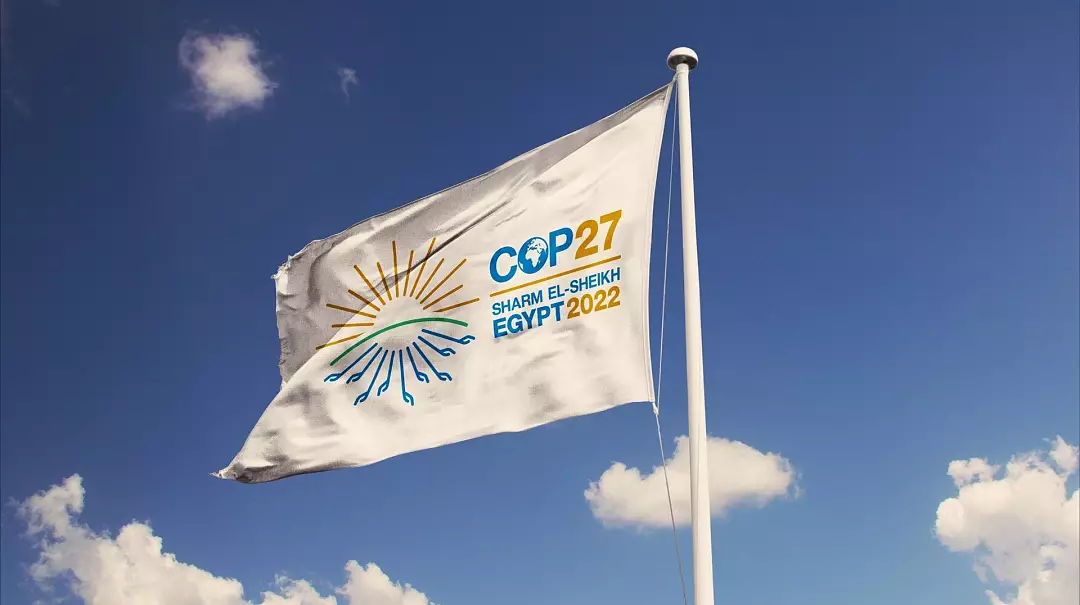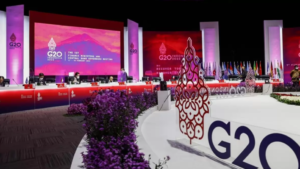The 27th Conference of the Parties (COP27) to the United Nations Framework Convention on Climate Change will be held in Sharm el-Sheikh, Egypt, from Nov. 6-18, 2022.
The Egyptian-led COP27 aims for renewed international cooperation to achieve the goals of the Paris Agreement and ensure the security of people and the planet.
The conference comes amid an international geopolitical context deeply marked by the proliferation of global crises and the alarming increase in the frequency of extreme weather events that are severely affecting the planet.
COP27 will address a range of crucial climate issues: from reducing greenhouse gas emissions (mitigation), to building resilience and adaptation with respect to the impacts of climate change, to commitments to finance climate action in developing countries. This is the first COP in Africa since COP22 held in Morocco in 2016, and many are hopeful that this will also be reflected in terms of attention to African countries, which are forced to face, and in many cases suffer, some of the worst impacts of the climate emergency.
The Egyptian chairmanship inherits from the United Kingdom, which hosted COP26 (in partnership with Italy) a number of unresolved issues that are particularly relevant in the context of an African COP, in particular:
- Mitigation: updating government commitments on emissions reductions to align with the 1.5° target
- Climate finance: increase the annual global climate finance target and continue discussions on the financial resources needed
- Adaptation: achieve a minimum 50% share of climate finance dedicated to adaptation
- Loss & damage: address the financial resources needed to address loss and damage associated with climate change impacts.
Cop27 is therefore an important opportunity to address these and other key issues for Africa and other developing countries and translate the commitments made in Glasgow into concrete action.
The COP, in brief
The United Nations Framework Convention on Climate Change (UNFCCC) entered into force on March 21, 1994, with the goal of preventing human interference defined as dangerous to the climate.
The Conference of the Parties (COP) is the supreme decision-making body of the Convention, composed of the 198 countries that have ratified it, referred to as “Parties” to the Convention.
Since the COP first met in Berlin in 1995, these conferences have grown in importance and are a key event on the international agenda because:
- They determine the priorities and agenda for global climate action
- They provide an opportunity for governments to negotiate and make commitments
- They foster dialogue among governments, intergovernmental organizations, and non-state and civil society actors
The COP’s mission is to organize regular meetings on an annual basis with the presence of heads of state, ministers, experts and civil society for a holistic assessment of global climate action. A key task of the COP is to monitor the effects of the measures taken by the Parties and the progress made in achieving the ultimate objective of the Convention.
As a rule, each COP ends with the Parties ratifying an agreement, or better called a pact. The Glasgow Climate Pact was in fact the concluding document of COP26, signed by the 197 participants.
The Paris Agreement:
When talking about COPs, the most immediate reference is undoubtedly to the 2015 Paris COP21. Indeed, a global framework for managing climate change was established in Paris with the goal of limiting global warming well below 2°C and continuing efforts to limit it to 1.5°C.
The Agreement is the first universal and legally binding agreement on climate change worldwide.
Photo by Rafael Henrique SOPA Images Sipa USA















